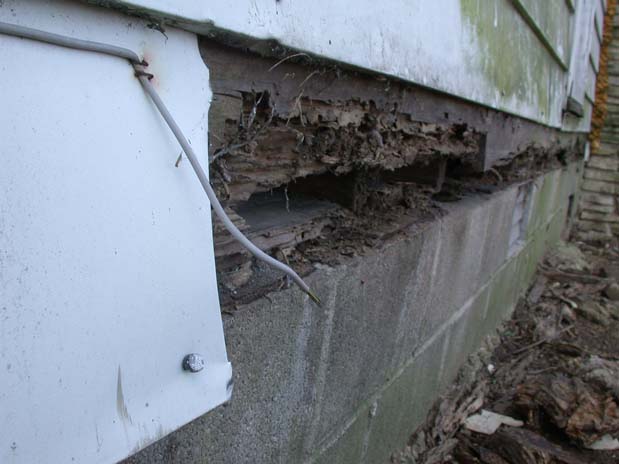

|
|
Termite damage
(John Obermeyer, Purdue University) |
|
Common Name: Termite - damage
See also: adult | larva Scientific Name: Isoptera: several species Status: pest of homes and buildings Damaging Stage: adult Injury: Termites feed in sound, dry wood and create tunnels that run along the grain of the wood. They are very serious structural pests because they destroy the wod that is used for buildings. Workers are able to eat cellulose-containing materials such as wood because they have microorganisms in their intestines that assist in digesting the cellulose. Action Threshold: Termite feeding must be eliminated to prevent structural damage to homes and other buildings. Treatments should be applied at the first sign of infestation. Often mud tubes are the first evidence of termite infestation. The presence of piles of winged termites, especially during the spring, is often a good indicator of an infestation. Weakened and discolored boards and actual presence of the workers themselves are direct evidence of termite infestations. Management: Termite control costs in the United States exceed $2 billion per year. Actual structural damage caused by termites is difficult to estimate but certainly falls into the hundreds of billions of dollars. Termite infestations can be devastating and should be treated by a professional with proper training and equipment. Great advances have been made in both chemical barrier treatments as well as baits. |